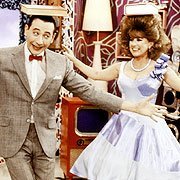Over at the cunting linguist, steff shared some results of a brain sex profile. Now I am a little knowledgeable about this stuff... not a lot; a little. I love these kinds of assessments, but I go into them a little too cautiously, fearing I can spot how each question factors into the big equation. So I have to watch myself to be sure I'm answering in a manner that is true to myself and my thoughts.
Here's how I did:
- Part 1 was Angles, where I scored 18 out of 20. This tests spatial abilities. The average for men is 15 and for women, it's 13. This particular step indicates I have more of a male brain.
- The second part of Part 1 was a "spot the difference" exercise. Me: 57%. Average women: 46%; avergae men 39%. This score indicates I have a balanced male-female brain. I was surprised at this score. I felt like I'd done much better at seeing the differences than the score indicates.
- The thumb test indicates my right brain is dominant. (I actually said "duh!" out loud when I read it.)
- For both empathising and systemising, I scored 8 out of 20. That's below the women's average for empathising and spot on the women's average for systemising. I agree with the empathy numbers. I would have considered myself more of a systemiser due to the nature of my work, but maybe it just means I'm not doing a job that is best suited for me.
- Part 5 was a series of faces. This reminded me of visits to the eye doctor. I had a hard time with it. The results show I prefer masculine faces.
- On the word association test, I scored a total of 18. The scale here only goes to 10, but it does say that women use both sides of the brain when doing verbal tasks.
Overall, my brain score puts me smack dab in the middle of the male-female spectrum. I'd love to see results broken down by gender and sexual preference. If you take the quiz and post it, let me know. I'd love to see other comments on it.





